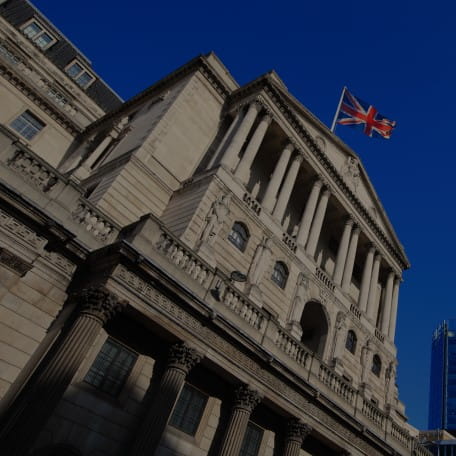The US stock market has risen strongly so far this year, but a closer look shows that a ‘Magnificent Seven’ of tech companies has driven the boom. Between them, Nvidia, Microsoft, Apple, Amazon, Tesla, Alphabet and Meta Platforms have accounted for over 60% of the rise in the S&P 500 Index*.
These seven stocks now represent almost a fifth of the value of the MSCI World Index, suggesting there is significant concentration risk if investing to track developed market indices. So, in a market dominated by a few, how can investors ensure they remain diversified?
Goodbye FANGs, hello Magnificent Seven
Financial market commentators love a good acronym. One of the most widely adopted is BRICs, coined by the Goldman Sachs economist Jim O’Neill to refer to a group of large emerging economies (Brazil, Russia, Indian and China). O’Neill has also been credited with promoting the equally catchy but less well-known MINT (Mexico, Indonesia, Nigeria and Turkey) as a designation for the next cohort of emerging economies.
While these simple terms can be useful in capturing the imagination and stimulating debate, they can also appeal to our instinct to oversimplify complex situations into a neat narrative. Or worse, they can be downright derogatory, as was the case with the ‘PIIGS’ – Portugal, Ireland, Italy, Greece and Spain – or ‘GIPSI’ countries, terms widely used during the eurozone sovereign debt crisis before common sense prevailed.
When looking at companies rather than countries, one popular designation was FANGs, a label promoted by CNBC presenter Jim Cramer for the US tech stocks Facebook, Amazon, Netflix and Google. The addition of Apple to the group saw this briefly become FAANG, before Facebook and Google’s name changes to Meta and Alphabet (and Netflix’s retreat from the upper echelons of the stockmarket) saw a failed attempt to get MAMAA to catch on (after adding in Microsoft).
However, Nvidia’s emergence as a market force this year, riding the wave of artificial intelligence excitement, has created an acronym challenge that even a world scrabble champion would struggle to solve. And so the acronym has been ditched in favour of the superlative, and the ‘Magnificent Seven’ was born. Bank of America analyst Michael Hartnett used this term to highlight the extent to which Nvidia, Microsoft, Apple, Amazon, Tesla, Alphabet and Meta Platforms have dominated stockmarket gains so far this year.
Concentration risk increases when large companies are the best performers
Not only are all of the Magnificent Seven huge in terms of their market capitalisations – the total value of their shares – but they have all notched up large double-digit percentage gains in 2023, ranging from 40% for Microsoft up to 220% for Nvidia*, propelling the company to enter the ‘trillion dollar club’ in terms of its shares’ overall value.
As with many equity indices, the S&P500 uses a system that weights companies according to their market capitalisations – larger stocks comprise a bigger proportion of the index. This means that high share price gains for big companies feed through directly to gains for the index.
Due to the way most equity indices work, large investment returns for big companies also lead to those companies becoming an even greater proportion of the indices. Market-cap weighted indices rebalance periodically (often quarterly); companies whose share prices have risen will see their market capitalisations grow and will be allocated a larger index weight.
The Magnificent Seven’s weight in the S&P500 index has now risen to almost 30%. For the tech-heavy NASDAQ 100 stockmarket, the concentration in the Magnificent Seven was even greater at almost 50% last month. Nasdaq usually rebalances once a year, but this level of concentration triggered a special rebalancing last month which trimmed their weights towards 40%.
Highly concentrated equity markets conflict with most investors’ desire to be diversified
In many ways, a company’s index weighting being determined by its size makes a lot of sense. But, for investors, the concentration risk flies in the face of the need for diversification.
While passive equity funds will seek to replicate their benchmark index – meaning a high exposure to the largest stocks – most active fund managers tend to look further afield in an effort to outperform. This also means they can often have a lower exposure to the largest companies and more stock picks from lower down the market cap scale.
Chris Foster, fund manager on the Liontrust Sustainable Future team, explains: “An aspect of the returns we have seen so far in 2023 is a recovery from the hit these megacap names took in 2022 as discount rates rose across the board due to higher inflation and interest rates. Although they are clearly great businesses, particularly given the strong returns we have seen this year in these names, we believe some of the most exciting opportunities to invest in innovative, sustainable companies are to be found further down the market cap.”
The team’s recently launched Liontrust GF Sustainable Future US Growth Fund has more than 40% invested in companies with a market capitalisation of £25bn or less, compared with only 11% for the MSCI US Index. It also has 10% in companies of £5bn or less, while the index weight to this area is effectively 0%.
Foster continues: “We don’t necessarily set out to have a particular size profile to fund. Rather, we are simply looking for the most compelling investment opportunities, wherever they sit. But this approach does mean that the portfolio tends to look quite different to that of the benchmark. Our view, however, is that to get different investment results, you must invest differently.”
This willingness to be different is often reflected in something called the ‘active share’. Active share is a simple measure of the proportion of a fund that is invested differently from its benchmark index – either by owning different stocks entirely or by having overweight/underweight positions in index stocks. While it only tells a small part of the story, it can be useful for investors in appraising whether funds offer any diversification from index trackers. For the Liontrust GF Sustainable Future US Growth Fund for example, the active share stands at 87%.
Investing in several funds with low active share against a common index could mean that an investor is failing to achieve the diversification benefits that owning multiple funds should confer. They would be doubling up on many of the funds’ underlying company holdings and if the index was very concentrated, the funds would be too.
So, while the emergence of the Magnificent Seven reflects an exciting period where innovative tech companies are at the forefront of the US economic growth, it also highlights the extent to which large companies drive headline stock market returns.
A compelling case can be made for owning any of the Magnificent Seven, and our fund managers have invested in several across various Liontrust funds, including the Liontrust GF Sustainable Future Fund, which owns both Microsoft and Alphabet. But investors should also be mindful that they understand their underlying investment exposure when investing in a fund, in order to avoid taking on unintentional risks.
Most fund providers supply a large range of fund statistics including active share, volatility, tracking error, number of holdings, top ten holdings and sector profile. These can all form an important part of an investor’s toolkit, helping ensure that an investment is aligned with their return objectives and risk tolerance.
READ MORE ABOUT THE RECENTLY LAUNCHED LIONTRUST GF SF US GROWTH FUND
*Source: Bloomberg, as at 31.07.23.
KEY RISKS
Past performance does not predict future returns. You may get back less than you originally invested.
We recommend this fund is held long term (minimum period of 5 years). We recommend that you hold this fund as part of a diversified portfolio of investments
Some of the Funds managed by the Sustainable Future team involve foreign currencies and may be subject to fluctuations in value due to movements in exchange rates. Investment in Funds managed by the Sustainable Future team involves foreign currencies and may be subject to fluctuations in value due to movements in exchange rates. The value of fixed income securities will fall if the issuer is unable to repay its debt or has its credit rating reduced. Generally, the higher the perceived credit risk of the issuer, the higher the rate of interest. Some Funds may invest in derivatives. The use of derivatives may create leverage or gearing. A relatively small movement in the value of a derivative's underlying investment may have a larger impact, positive or negative, on the value of a fund than if the underlying investment was held instead.
The issue of units/shares in Liontrust Funds may be subject to an initial charge, which will have an impact on the realisable value of the investment, particularly in the short term. Investments should always be considered as long term."
DISCLAIMER
Non-UK individuals: This document is issued by Liontrust International (Luxembourg) S.A., a Luxembourg public limited company (société anonyme) incorporated on 14 October 2019 and authorised by and regulated as an investment firm in Luxembourg by the Commission de Surveillance du Secteur Financier (“CSSF”) having its registered office at 18, Val Sainte Croix, L-1370 Luxembourg, Grand Duchy of Luxembourg and registered with the Luxembourg trade and companies register under number B.238295.
UK individuals: This document is issued by Liontrust Fund Partners LLP (2 Savoy Court, London WC2R 0EZ), authorised and regulated in the UK by the Financial Conduct Authority (FRN 518165) to undertake regulated investment business.
It should not be construed as advice for investment in any product or security mentioned, an offer to buy or sell units/shares of Funds mentioned, or a solicitation to purchase securities in any company or investment product. Examples of stocks are provided for general information only to demonstrate our investment philosophy. The investment being promoted is for units in a fund, not directly in the underlying assets.
The document contains information and analysis that is believed to be accurate at the time of publication, but is subject to change without notice. Whilst care has been taken in compiling the content of this document, no representation or warranty is given, whether express or implied, by Liontrust as to its accuracy or completeness, including for external sources (which may have been used) which have not been verified.
All the information provided should be treated as confidential, information may constitute material non-public information, the disclosure of which may be prohibited by law, and the legal responsibility for its use is borne solely by the recipient. This presentation should not be copied, forwarded, reproduced, divulged or otherwise distributed in any form whether by way of fax, email, oral or otherwise, in whole or in part without the express and prior written consent of Liontrust
This is a marketing communication. Before making an investment, you should read the relevant Prospectus and the Key Investor Information Document (KIID) and/or PRIIP/KID, which provide full product details including investment charges and risks. These documents can be obtained, free of charge, from www.liontrust.co.uk or direct from Liontrust. If you are not a professional investor please consult a regulated financial adviser regarding the suitability of such an investment for you and your personal circumstances.










